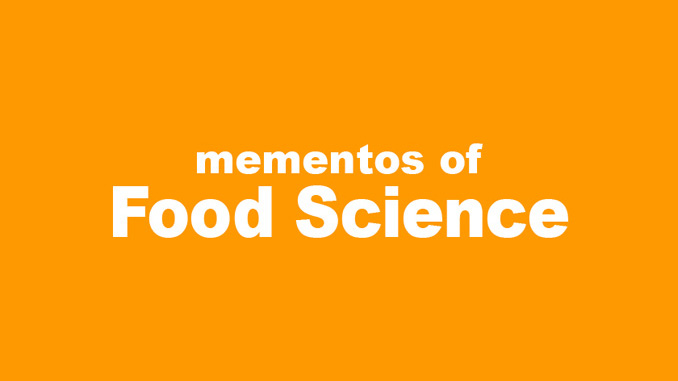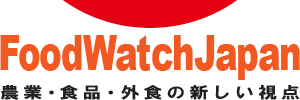
およそ30カ国が、消費者向けに販売される食品は現代バイオテクノロジーを用いて開発された作物が使用されていることを表示しなければならないと義務づけている(生産方法の表示)。そのほとんどの国では、この表示義務は食品が現代バイオテクノロジーを使って作られたものであると知りたいという消費者の要求に応える政府の義務(少なくとも必要なもの)として捉えられている。この種類の表示を支持する人々は、健康への懸念からといった多くの理由を挙げる。多くの場合その理由は、はっきりとしないものなのだが、「消費者の知る権利」として一括りに言及されたりしている。例えばヨーロッパでは、当局はこう断言している。バイテク表示法には科学的根拠はなく、それはむしろ、市場で消費者が知った上で選択を行う権利を満たすためと。米国の消費者もバイテク食品の生産方法表示を要求する理由として「知る権利」を挙げている。しかし、米国はそのような表示義務を設けていない。Codex委員会がバイテク食品の国際表示基準を作ろうと努力しているが未だに実現されていないのは、EUと米国のこの違いによるところが大きい。
Over two dozen countries require that food sold to consumers be labeled to disclose the use of modern biotechnology (method of production labeling) in crop development (bioengineering, gene technology, GM, GMO). In most of these countries, this requirement for labeling is predicated on the government’s need (at least perceived need) to meet consumer desire to know that a food has been produced using modern biotechnology. There are many reasons expressed by individuals who support this type of labeling, including concerns about health. Frequently, the reasons are often ill-defined but are referred to as “consumer’s right to know.” In Europe, for example, authorities assert that there is no scientific basis for their biotech labeling legislation; rather there is a need to satisfy consumers’ right to make informed choices in the marketplace. Consumers in the United States also cite a “right to know” as a reason for demanding method of production labeling for biotech foods. However, the U.S. has not created such labeling requirements for biotech foods, and this difference between the E.U. and the U.S. is the major reason that efforts by the Codex to establish an international standard for labeling biotech foods have not been successful.
バイテク食品に関して、食品表示に特別表示文や言葉を入れるかどうかの議論は1990年代初頭から続いている。米国では、米国食品医薬品局(FDA)が食品や農作物を原料とした食品の表示を「連邦食品・医薬品・化粧品法」(以下、「食品法」)の下に管轄している。FDAの92年政策で、FDAは、「食品法」がFDAの表示に関する権限をどのように規定しているか説明している。第1に、表示は誠実なものでなければならず、かつ誤解を招くものであってはならない。
「食品法」には、「誤解を招く」ということについてやや堅苦しい法律用語で次のように説明している。ある食品の製品表示(食品表示およびパンフレットなどの付随情報)において、「表示されたあるいは示唆された原料の事実が明示されていない場合、または、その食品を使用したことによって生じるであろう結果について明示されていない場合……」その食品は不正表示(訴訟の対象となる)であると見なされる(「食品法」403条(i)(21米国法典343(i)))。この意味するところをFDAは次のように解釈している。ある食品が(生物工学かそのほかの方法によって作られた)新しい植物の品種に由来したもので、既存の同種の食品と共通の名称で呼ぶにはその違いが歴然としたものだった場合(例えば、高オレイン酸大豆油のように組成に実質的な違いがあるなど)、または、消費者への注意喚起が必要な安全性あるいは扱い方の問題(例えば、新しい調理法や保存方法が必要であったり、新たなアレルゲンを含んでいるなど)がある場合、消費者は適切な表示によって知らされなければならない。そのような情報が脱漏していた場合、「食品法」の下では「誤解を招く」表示と判断される。
FDAはまた、現代バイオテクノロジーを用いることそれ自体が、表示が必要とされるような違いを生じさせるというということに科学的根拠はないと言っている。多くの消費者が、消費者の知る権利などのさまざまな理由を引き合いに出し、バイテク食品の表示を義務付けるべきだとFDAにコメントを寄せた。そのような「権利」は、米国憲法にも権利章典にも明記されていない。米国の裁判所は、そのような申し立ての適法性を認めていない。FDAの92年政策に対する訴訟(それはFDAのさまざまな責任を追及するものであったが、その中に表示に関する見解への異議申し立ても含まれていた)についても同様に適法性を認めていない。すなわち、「食品法」の下に生産者に現代バイオテクノロジーの使用を表示するよう義務付ける法的根拠をFDAは持っていないということだ。ところが、バイテク企業の中には、自社製品が現代バイオテクノロジーを使って開発されたものであると自主的に表示したいという者、または、使っていないと表示したいという者があり、そういった企業を支援するためFDAはガイダンスを出すことになった。
バイテク表示の国際的議論の場は、Codex委員会食品表示部会(以下、食品表示部会)だ。食品表示部会は、Codex委員会によって食品表示に関する指針や基準作成を託されている。バイテク表示の指針について10年以上も議論を続けているが、生産方法表示の義務付けに関しては、未だ合意に至っていない。組成や扱い方の大きな変化や新規のアレルゲンの問題が論争の的であった訳ではない。事実、一般的にアレルギーの原因となるものに由来する物質について表示する条項が、Codex委員会によって採択されている。生産方法表示について、Codexの文書は健全な科学を反映したものであるべきだと強く主張したのは米国だ。米国と他数カ国が、バイテク食品に生産方法表示を義務付ける国際的指針を作ろうというEUの提案に反対している。
一方、日本を含む多くの国がEUの提案を支持している。その理由として消費者の知る権利がしばしば引き合いに出される。しかし、Codex執行理事会は次にように裁定を下した。「消費者が、食品が現代バイオテクノロジーによって作られたものか否かを知る権利を主張することは分かるが、その知る権利は、明確に定義されておらずしかも定まったものでないということにも留意すべきである。この点から、主張された知る権利を適切な表示に関する意思決定の第一義的な根拠としてCodexが取り上げることはできない」(1996年6月Codex執行理事会)
バイテク食品に関する消費者の知る権利はもともと、安全性への不信感から生じている。その不信感を支持する科学的データはないにもかかわらずである。そのほかの理由には、例えば、菜食主義者であるとか特別な食事療法を実践している人々であるとかが、バイテク食品を避けたいと望んでいるということがある。理由はどうあれ、バイテク食品に対する生産方法表示義務が広く支持される国ならば、その要求に応えるため法律が制定されるであろう。米国では、議会が「食品法」を改正してバイテク食品に生産方法表示を義務付けることもできる。しかし、今のところ議会の動きを促すような世論の高まりはない。この問題に関して国際的に合意に至るなどということは、近い将来にありえそうにない。Codexも指針案についての議論を先延ばしにしている。
The issue of whether special label statements or terms should be included on the food label for a biotech food has been debated since the early 1990s. In the U.S., FDA has authority for the labeling of foods and food ingredients derived from crops under the Federal Food, Drug, and Cosmetic Act (the act). In its 1992 policy, FDA explained how the act circumscribes FDA’s labeling authority. The primary tenant is that labeling must be truthful and not misleading.
The act describes misleading in somewhat stilted legal language to mean that a food is considered to be misbranded (subject to legal action) if the labeling (the food label and any accompanying information, e.g. a brochure) “fails to reveal facts that are material in light of representations made or suggested in the labeling or with respect to consequences which may result from the use of the food…”. (Section 403(i) of the act (21 U.S.C. 343(i))) FDA explained that this means that consumers must be informed, by appropriate labeling, if a food derived from a new plant variety (bioengineered or otherwise produced) differs from its traditional counterpart such that the common or usual name no longer applies to the new food (e.g. substantial change in composition; such as high oleic soybean oil), or if a safety or usage issue (e.g. new cooking or storage requirements or a new allergen is present) exists to which consumers must be alerted. Such information would be a material fact whose omission may make the label of the food misleading under the act.
FDA also explained that it found no scientific basis that the use of modern biotechnology itself resulted in a difference that would be material information. Many consumers commented to FDA that labeling should be required for biotech foods and cited a variety of reasons, including consumers’ right to know. Such a “right” is not specified in the U.S. Constitution or Bill of Rights, and U.S. courts have declined to recognize the legality of such claims, including a lawsuit against FDA’s 1992 policy that challenged FDA’s position on labeling among other charges. Thus, FDA has no legal basis under the act to require manufacturers to disclose the use of modern biotechnology in labeling. Instead, FDA issued guidance to assist developers who wish to voluntarily label their products to indicate that the product has either been developed using modern biotechnology or was not developed via modern biotechnology.
The stage for the international debate on biotech labeling is the Codex Committee on Food Labeling (sic; CCFL) that is charged by the Codex Alimentarius Commission (Codex) to develop guidelines and codes of practice for food labeling. The CCFL has debated guidelines on biotech labeling for over a decade without reaching a consensus on mandatory method of production labeling. Issues related to significant differences in composition, usage, or new allergens were not controversial. In fact a provision for labeling substances derived from commonly allergenic sources was adopted by Codex. Regarding method of production labeling, the U.S. asserted that Codex documents should reflect sound science. The U.S. and a few other countries have resisted the EU’s proposals for an international guideline to mandate method of production labeling for biotech foods.
Many countries including Japan support the EU approach. Consumers’ right to know is an oft cited reason, but the Codex Executive Committee ruled that “while consumers may claim the right to know whether or not foods had been prepared by such means (modern biotechnology), it also noted that the claimed right to know was ill-defined and variable and in this respect could not be used by Codex as the primary basis of decision-making on appropriate labeling.” (Codex Executive Committee, June 1996)
The basis of consumer right to know regarding biotech foods often stems from a distrust of the safety of these foods even though there is no supporting scientific data. Other reasons are cited as well. For example, individuals who are vegetarians or follow other specific dietary regimes may wish to avoid using biotech foods. Whatever the reason, where governments find broad support for mandatory production labeling for biotech foods, legislation will be enacted to meet the demand (perceived or otherwise). In the U.S., the Congress could amend the act to require method of production labeling for biotech foods, but to date there has not been the ground swell of public opinion that would precipitate congressional action. It is unlikely that an international agreement will be reached in the near future on this issue, and Codex has tabled the debate on draft guidelines.
※このコラムは「FoodScience」(日経BP社)で発表され、同サイト閉鎖後に筆者の了解を得て「FoodWatchJapan」で無償公開しているものです。




